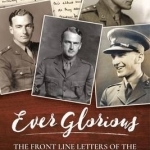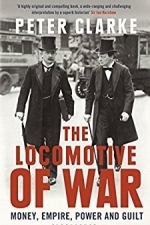Alex Kapranos recommended track O Horos Tou Sifaka Yiannis Markopoulos by Giannis Markopoulos in O Horos Tou Sifaka by Giannis Markopoulos in Music (curated)

Realtime Trains
Travel and Utilities
App
Realtime Trains provides live travel information for the British mainline passenger railway network,...

OffMaps 2 · Offline Maps for Travelers
Navigation and Travel
App
"A Cheaper Way to Navigate Abroad, No Costly Data-Roaming Required", NYT GadgetWise Blog "OffMaps 2...
Hazel (1853 KP) rated The Care and Management of Lies in Books
Dec 17, 2018
British author Jacqueline Winspear states in the letter from the author at the front of the book that the idea for this novel came from a second hand copy of a book titled <i>The Woman’s Book</i> by Florence B Jack (1911) containing an inscription revealing that it was presented as a gift to a woman on her wedding day in July 1914. The story within </i>The Care and Management of Lies</i> is Winspear’s imaginings about who that woman was and what her life was like.
The book focuses primarily on four characters, the main being Kezia Brissenden née Marchant who receives the gift <i>The Woman’s Book</i> from a close friend, Dorothy “Thea”, who so happens to be the older sister of her new husband, Tom. The book was not a particularly kind gift as it emphasized Kezia’s upbringing and who, due to her father being a reverend and employer of maids and cooks, had never produced her own meal in her life nor had any experience with running a household, let alone a farm – her new home.
Whilst Kezia determinedly throws herself into her new role, showing her love for Tom through the food she learns to cook, Thea, living in London, is drifting away from their friendship. With the possibility of war on the horizon, Thea joins a pacifist movement, which is somewhat ironic as she was once involved with the suffragettes. On the other hand, once war is declared, Tom decides to enlist in the army as does neighbour, Edmund Hawkes, a man who is rather envious of Tom and his lovely wife. The reader receives two different perspectives of the terrors of war from these characters, but then also another, surprisingly, from Thea who rejects pacifism and goes out to France to help in anyway she can. This leaves Kezia at home alone with the effects the war has on Britain.
The love between Kezia and Tom is emphasized through the letters they send each other. Both are lying about their situations by trying to convince the other that they are better off than they really are. The thing that keeps them both going are Kezia’s descriptions of her fictional meals that she prepares for Tom’s dinner, describing in great detail the preparation and taste of the food.
Each chapter begins with a quote from <i>The Woman’s Book</i> (and later <i>Infantry Training</i> and <i>Field Service Pocket Book</i>) that relate to the particular events occurring in the story at that time. This is a great way of underlining the significance of that wedding present to the storyline.
The narrative quickly changes from character to character which, although helping to keep the pace of the novel, can sometimes be a little confusing. It also made it difficult to get into the story at the beginning. Sometimes it took a lot of concentration to follow the text and those with minds that easily wander may constantly find themselves suddenly reading from a different point of view without having noticed the change over.
Winspear’s grandfather was a soldier in the trenches during the Great War and so it seems likely that some of the scenes may be based on his experiences. If that is the case then it can be believed that <i>The Care and Management of Lies</i> is as accurate as can be in terms of the war and life on the front lines. Winspear also does not attempt to gloss over any of the war horrors, therefore does not create the unlikely “and they all lived happily ever after” ending that other writers of war stories have done in the past.
Those interested in war themes may be particularly interested in this book, especially as this year (2014) is the anniversary of the Great War. <i>The Care and Management of Lies</i> is a piece of literature to add to the mountain of media coverage of the commemoration of the war.

Esprit - new styles daily!
Shopping and Lifestyle
App
Simplify your (fashion) life: no matter whether you are looking for the perfect dress for the party...

Ever Glorious: The Front Line Letters of the Crookenden Brothers, 1936 -46
Book
The Crookenden brothers - Henry, Napier and Spencer - were born into a military dynasty. Their...

Cornwall: 2016
Book
Pathfinder(R) Cornwall covering Land's End, Prussia Cove and Bodmin Moor. This selection offers...

The Locomotive of War: Money, Empire, Power and Guilt
Book
An innovative exploration of the origins, impact, and consequences of the First and Second World...
business history

The Other Trail of Tears: The Removal of the Ohio Indians
Book
The Indian Removal Act of 1830 was the culmination of the United States' policy to force native...

A World on Fire: An Epic History of Two Nations Divided
Book
'No two nations have ever existed on the face of the earth which could do each other so much good or...

